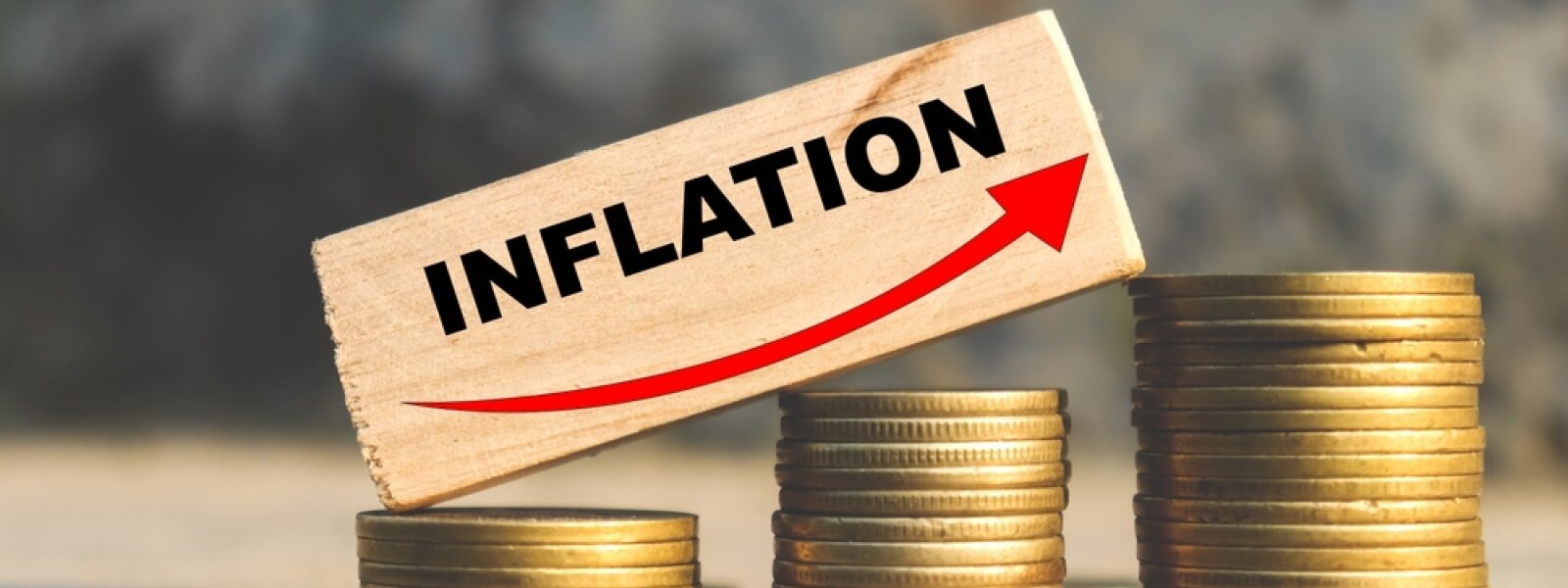From this article you will learn that inflation is one of the key factors that people pay attention to when analyzing the success of an investment. After all, one of the main objectives of investment is to beat inflation. Accordingly, when they offer you services for saving and increasing capital, they mean precisely the opportunity to overtake/become equal to inflation.
Let's take a deeper look at what inflation means, where it comes from and why it is useful for the economy as a whole.
What is inflation in simple terms
The usual definition of inflation is that it is when prices rise. However, when analyzing the phenomenon of inflation in detail, the essence of inflation is not that products become more expensive, but that banknotes become cheaper.
What does inflation mean
Like any product, money has its own value; accordingly, when the demand for money increases, money becomes more expensive and when the supply of money increases, money becomes cheaper.
Within the framework of macroeconomic analysis, inflation is mainly responsible for:
- Velocity of money (speed of money turnover in the economy).
- Mass of money (the amount of money actively circulating in the economy).
Thus, if there is more money in the economy, but the speed does not change, then supply increases and the value of money falls — the inflation rate rises. If the velocity of money falls, fewer transactions occur, people save more and spend less. In this case, the money supply decreases and inflation, accordingly, either falls or turns into deflation.
It is very difficult to estimate the mass of actively circulating money and the speed of its turnover. Therefore, in the framework of measuring inflation, indirect indicators are used. The main indicator for measuring inflation for people who do not delve into the nuances is the consumer price index. It is this index that is shown on the pages of central banks in the “inflation” column.
ІThe consumer price index is a basket of prices for a certain range of goods. It is this circle and the ratio within this basket that may vary from methodology to methodology. Therefore, for a correct comparison, it is always worth looking into the methodology for calculating the consumer price index.
The main advantage of the consumer price index is its understandability. At the same time, the disadvantage of the index can be considered that it is very vulnerable to the phenomenon when banknotes in price did not fall, but there was an increase or decrease in price of specific positions calculated in the index. For example, an increase in the cost of fuel does not mean that banknotes have become cheaper in absolute terms. This means that fuel, for certain political or economic reasons, has become more expensive. But the consumer price index will show rising inflation.
Let's look at an example that is relevant to our country. The season for fresh vegetables/fruits has begun; accordingly, prices for vegetables or fruits have dropped significantly and this leads to the fact that the index will show a slowdown in inflation. But in fact, there was only a reduction in the price of fruits and vegetables, and banknotes did not change their value.
Other methods for calculating inflation are indices such as the basic price index of personal consumption expenditures and the producer price index. The use of different methods is aimed at analyzing inflation from different angles.
Read also: Volatility of the market: what an investor should know
Pros and cons of inflation
Like any phenomenon in the economy, inflation has both pros and cons. Let's look at them in more detail.
Pros of inflation:
- Economic development. The fact that idle money is constantly becoming cheaper encourages people with money to invest it and develop the economy accordingly
- The presence of deflation. Deflation is the negative value of inflation. In this situation, money lying idle is becoming more expensive every day, which greatly harms the economy (consumption is put off until later).
Disadvantages of inflation:
- Social explosions and a general decline in living standards with uncontrolled inflation. Vivid examples can be the Weimar Republic, the countries of the former USSR after the collapse.
- An invisible tax that a government levies on its citizens due to the presence of such an instrument as the “printing press” (usually contained in a formally independent institution called the “Central Bank”).
The impact of inflation on investment
On the one hand, inflation helps the investor — it pushes consumers to spend money and businesses to develop. On the other hand, inflation also pushes the investor to invest, because funds lying idle not only do not increase in value, but their value also decreases. Inflation also sets the investor the task of overtaking it.
FC Daliz-Finance LLC has the ability to buy war bonds on the secondary market, as well as has experience in buying war bonds through primary dealers. In the first months of the war our clients bought war bonds for the amount of more than 500 million hryvnias. Join their number by leaving an application on our website.
Read also: How to start investing in Ukraine in 2023
How to protect yourself from inflation: tips for investors
In order to cope with inflation, you need to understand your cash flows, your needs and where the investor is exposed to inflation in his financial life.
For example, you work as an employee, eat and live in an apartment for which you need to pay utilities. Your salary and savings are subject to inflation. Accordingly, if you have accumulated a decent amount of money that you are saving for something specific or saving for retirement or a rainy day, then you should think about investing it. This solution will help reduce, and ideally eliminate, the effect of inflation.
Frequently asked questions: what is inflation
What is the difference between inflation and devaluation
Inflation is a decrease in the value of banknotes in relation to consumer goods. Devaluation is a decrease in the value of banknotes in relation to other banknotes. For example, a rise in the price of bread means inflation, a rise in the price of the US dollar means devaluation.
What is the percentage of inflation in Ukraine
As of the end of October 2023, inflation in Ukraine was 7.1%. Sometimes inflation is expressed in a monthly change normalized to an annual one (the growth rate of the consumer price index in May-June mathematically normalized to an annual value) or on an annual basis (September 2022-September 2023). Data on inflation levels in Ukraine are regularly published by the NBU.





